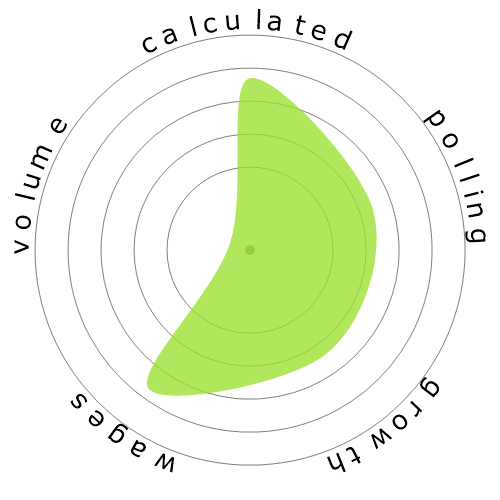Atmospheric and Space Scientists
Where Would You Like to Go Next?
Or, Explore This Profession in Greater Detail...


What does this snowflake show?
What's this?
We rate jobs using four factors. These are:
- Chance of being automated
- Job growth
- Wages
- Volume of available positions
These are some key things to think about when job hunting.
People also viewed
Calculated automation risk
Low Risk (21-40%): Jobs in this level have a limited risk of automation, as they demand a mix of technical and human-centric skills.
More information on what this score is, and how it is calculated is available here.
User poll
Our visitors have voted there's a low chance this occupation will be automated. This assessment is further supported by the calculated automation risk level, which estimates 23% chance of automation.
What do you think the risk of automation is?
What is the likelihood that Atmospheric and Space Scientists will be replaced by robots or artificial intelligence within the next 20 years?
Sentiment
The following graph is shown where there are enough votes to produce meaningful data. It displays user poll results over time, providing a clear indication of sentiment trends.
Sentiment over time (yearly)
Growth
The number of 'Atmospheric and Space Scientists' job openings is expected to rise 5.6% by 2033
Total employment, and estimated job openings
Updated projections are due 09-2025.
Wages
In 2023, the median annual wage for 'Atmospheric and Space Scientists' was $92,860, or $45 per hour
'Atmospheric and Space Scientists' were paid 93.2% higher than the national median wage, which stood at $48,060
Wages over time
Volume
As of 2023 there were 9,310 people employed as 'Atmospheric and Space Scientists' within the United States.
This represents around < 0.001% of the employed workforce across the country
Put another way, around 1 in 16 thousand people are employed as 'Atmospheric and Space Scientists'.
Job description
Investigate atmospheric phenomena and interpret meteorological data, gathered by surface and air stations, satellites, and radar to prepare reports and forecasts for public and other uses. Includes weather analysts and forecasters whose functions require the detailed knowledge of meteorology.
SOC Code: 19-2021.00
Comments (8)
Reply to comment